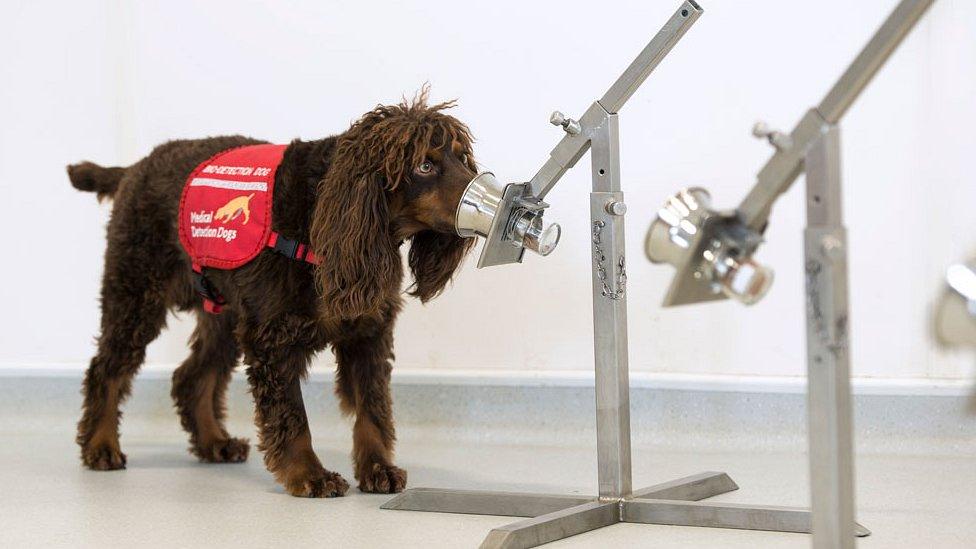Coronavirus: Sniffer dogs used to detect virus at airport
- Published
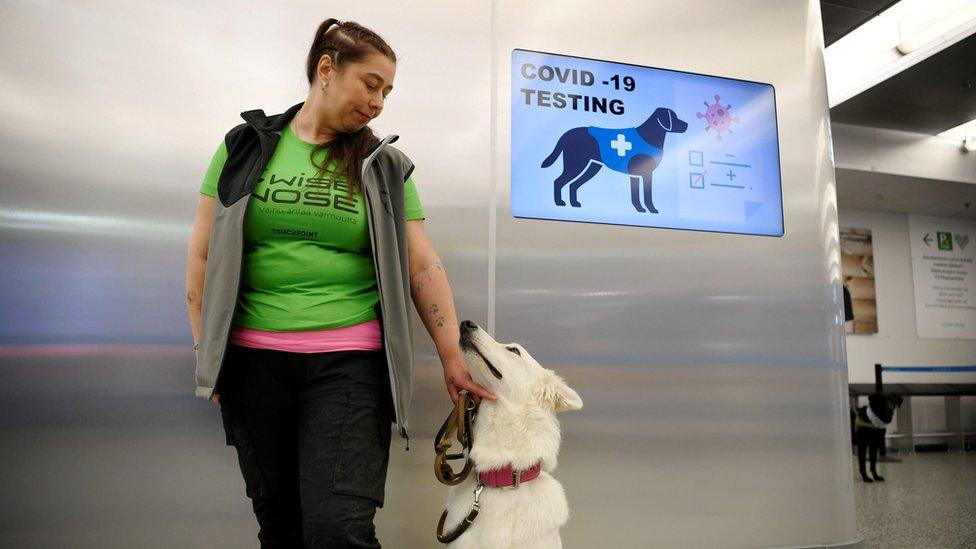
Sniffer dogs have started work at Helsinki airport to detect coronavirus.
Dogs are already used at airports to detect illegal items and they also used to detect illnesses such as cancer because they have such a good sense of smell.
This week these trained dogs started work sniffing passengers at Helsinki airport in Finland as part of a trial.
A team of 15 dogs and 10 instructors are being trained. One of the dogs, Kossi, is a rescue dog from Spain who has worked before detecting cancers.
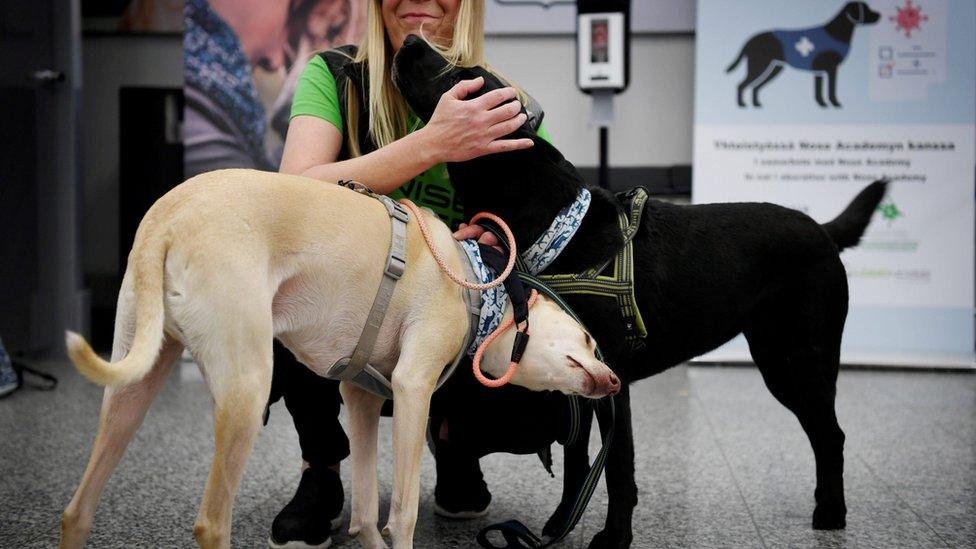
Sniffer dogs at Helsinki airport have been trained to sniff out coronavirus.
How does the test work?
In the canine test, a passenger would wipe their neck with a cloth, place this in a can which is then sent to another room for a dog to sniff.
A dog can detect the presence of coronavirus within seconds. If the virus is detected the dog will yelp, paw or lie down.
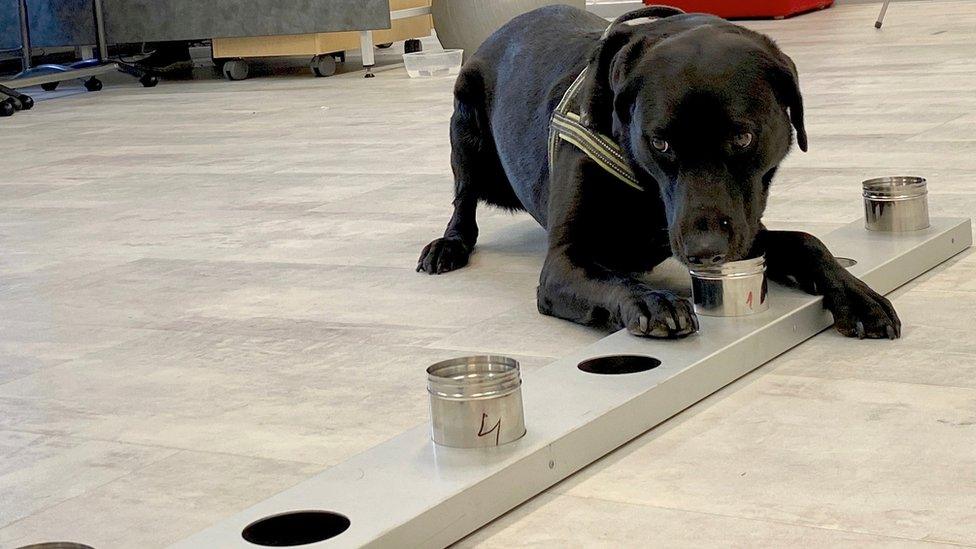
Sniffer dog Miina has been trained to detect coronavirus from the passengers' samples.
Anna Hielm-Bjorkman, Professor at the University of Helskini, told Reuters news agency that their research showed that the dogs will find the virus five days before the patients get any symptoms.
"They are very good [at detecting coronavirus]. We come close to 100% sensitivity," she said.
Researchers in Finland hope that by using dogs it will be a cheap, fast and effective way of testing people for the virus.
The trial has had good results so far but more research needs to be done to prove how effective canine testing is.
Will canine testing be used in the UK?
Here in the UK, dogs are also being trained. Six dogs are currently being trained by Medical Detection Dogs in Milton Keynes.
Dr Claire Guest from the charity, said the dogs were already showing signs that they would be able to sniff out the virus.
She has previously trained dogs to spot the scent of malaria, cancer and Parkinson's disease.
- Published30 March 2020
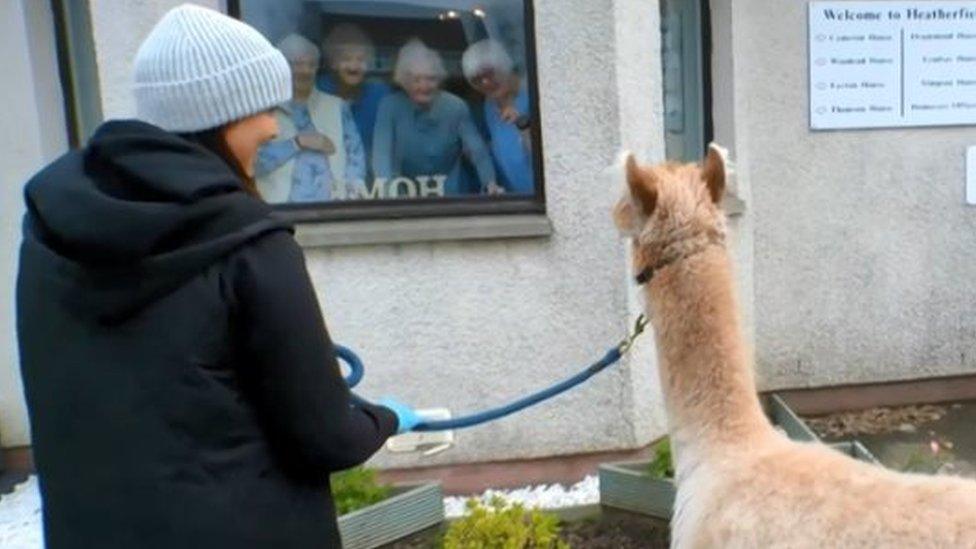
- Published3 July 2020
